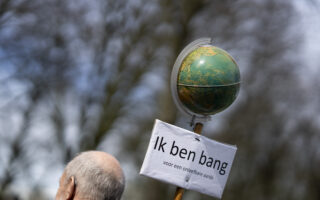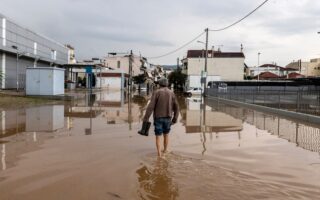A blue digital transition

Oceans: Not only do they regulate the Earth’s climate but they also sustain life as we know it. Yet, despite their critical role, oceans are facing persistent degradation and destabilization worldwide.
In the European Union, green transition, the Green Deal, and the digital transformation are top priorities, aiming to achieve climate neutrality, foster economic development and save our oceans.
At this year’s Delphi Economic Forum in Delphi, Greece, themed “The Great Transition,” on the panel titled “Safeguarding our Oceans in a Warming World,” I stressed the necessity of a blue digital transition which encompasses digital transformation and the green transition tailored to the marine environment.
Europe’s commitment to digital transformation is already evident in its policies and legislative frameworks. Let’s mention here the Digital Decade framework and recent legislation like the Data Act, European Chips Act, and Artificial Intelligence Act, which underscore the continent’s determination to succeed in the digital transition.
Our ability to meet climate neutrality targets by 2050 set by the Green Deal directly depends on our ability to innovate. There is a vital link between the Green Deal and the blue economy, emphasizing that progress in one domain is contingent upon the other. Innovative technologies, particularly in areas like monitoring, remote sensing, AI and robotics, have a critical role in driving advancements within the blue economy.
While Europe has witnessed a surge in ocean innovators and investors, there is a pressing need to accelerate and scale up efforts at national, European and international levels.
One notable initiative is the European Digital Twin of the Ocean (DTO), a virtual representation of the ocean, also linked to the Destination Earth initiative, funded by the European Commission. Its first version will be deployed from June 2024. The DTO aims to restore ocean health and support the blue economy. It is promising by using real-time and historical observations as well as numerous satellite data, advanced numerical modeling, artificial intelligence, machine learning and high-performance computing to generate the knowledge needed by entrepreneurs, policy makers, citizens and scientists to make informed decisions.
While Europe has witnessed a surge in ocean innovators and investors, there is a pressing need to accelerate and scale up efforts
For instance, in the Mediterranean Sea, where oil spills pose a significant threat with up to 2,000 incidences of operational oil spill estimated to occur annually, the DTO will enable local authorities to access directly reliable data and computer scenarios to develop effective response strategies. They will be able to access information for detecting what coastal resources could be at risk from the oil spill.
Furthermore, the European Commission is investing €330 million through the Digital Europe Program in a network of 150 European Digital Innovation Hubs (EDIHs). These hubs support small and medium-sized enterprises (SMEs) and startups in upgrading their processes, products and services using cutting-edge digital technologies. Seven EDIHs are in Greece, including Smart Attica in the region of Attica and Synerginn in Western Macedonia.
Some EDIHs focus on leveraging digital solutions for sustainable blue business practices, with the potential for more to adopt similar approaches.
The nexus healthy oceans / blue economy / digital transformation requires careful consideration and collaboration. Overcoming conflicts and focusing on synergies is crucial.
The synergy between digital transformation and green transition is imperative to save our oceans, achieving climate neutrality and driving economic growth. This highlights the need for a shift towards a blue digital transition to effectively address the challenges and opportunities presented by both environmental sustainability and technological innovation to safeguard our oceans.
Dr Elisabeth Lipiatou has 30 years of experience in science/policy interface in marine science and technology, climate change and digital transition, and over 40 publications, her latest one at Oxford University Press is titled “The Genesis and Evolution of European Union Framework Programmes on Climate Science.” The views expressed here are solely those of the author and do not represent the views of the European Commission.





